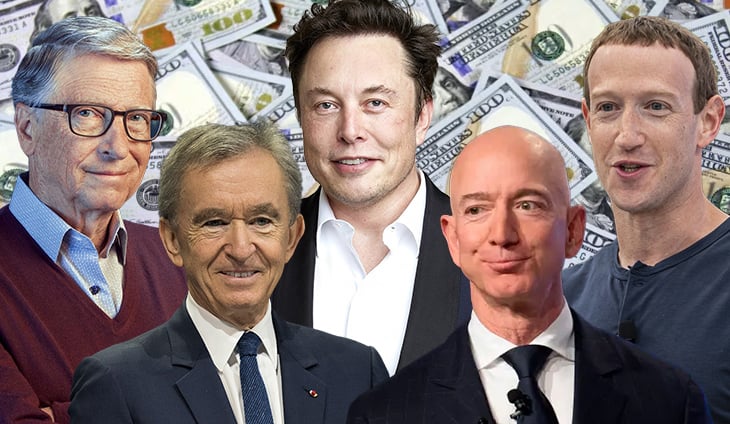The world’s five richest men have more than doubled their wealth to $869 billion (£681.5bn) since 2020, while nearly 5 billion people—the poorest 60% of the global population—have seen their wealth decline, according to a new report by Oxfam.
The study, released ahead of the World Economic Forum in Davos, Switzerland, warns that inequality is accelerating. If current trends continue, the world could see its first trillionaire within a decade, and global poverty may persist for another 229 years.
Oxfam’s Inequality Inc. report highlights that billionaires have grown $3.3 trillion richer since 2020, increasing their wealth three times faster than inflation. Seven out of ten of the world’s largest corporations are led or owned by billionaires, despite stagnating wages for millions of workers worldwide.
Between 2020 and 2023, the combined wealth of Elon Musk, Bernard Arnault, Jeff Bezos, Larry Ellison, and Mark Zuckerberg grew by $464 billion (114%), while the total wealth of the poorest 4.77 billion people fell slightly in real terms.
Workers are also struggling. Across 52 countries, the average real wages of nearly 800 million people have fallen, costing them a total of $1.5 trillion—the equivalent of 25 days’ wages per worker over two years. Meanwhile, 148 of the world’s largest companies recorded $1.8 trillion in net profits, a 52% rise compared with 2018–21 averages.
Oxfam calls for a wealth tax to reduce the imbalance between super-rich executives and ordinary workers. In the UK, a 1–2% annual tax on net wealth above £10m could generate £22bn each year, enough to fund public services and social support.
Julia Davies, investor and founding member of Patriotic Millionaires UK, says such levies are “minuscule compared with taxes on income from work” but could transform public infrastructure and improve the lives of vulnerable groups.








